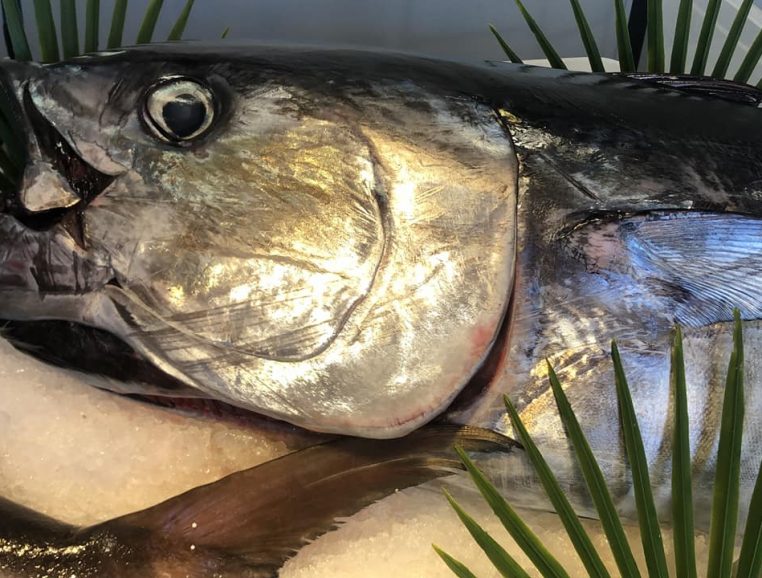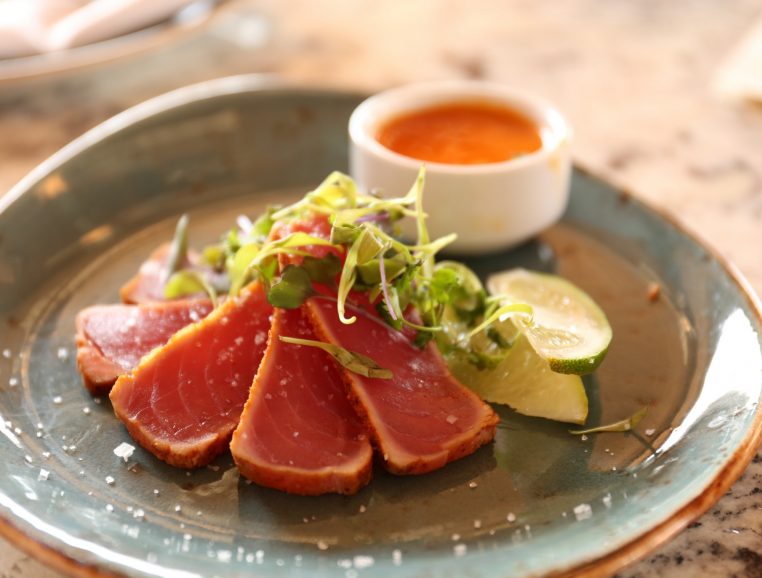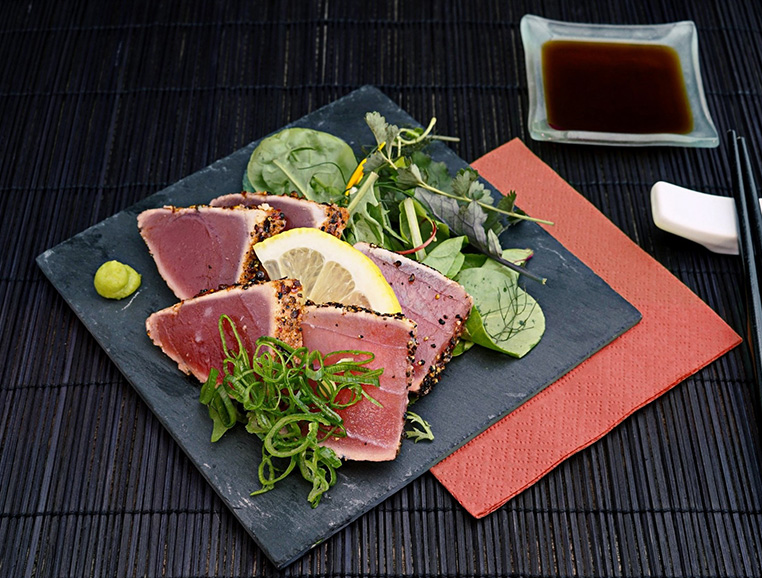Prudence and discernment
A few years ago, with stocks on the verge of collapse, bluefin tuna consumption was widely discouraged, leading the Principality of Monaco to adopt a consensus moratorium on its consumption. With stocks now in better shape, it is possible to eat bluefin tuna, but with great care. Ethic Ocean suggests to limit the quantity consumed, to privilege the “East Atlantic and Mediterranean” origin and to choose the specimens fished with the rod, of more than 30 kg (thus with sexual maturity). On the other hand, the consumption of bluefin tuna from the “Western Atlantic” stock and other overexploited tuna species, Pacific bluefin tuna (Thunnus orientalis) and Southern bluefin tuna (Thunnus maccoyii) when they come from the southern part of the three oceans, should be avoided.

What criteria should be applied?
For Mr.GoodfishUnder the Prince Albert II Foundation’s sustainable consumption programme, bluefin tuna can be eaten but only if it is wild, comes from certain fishing areas (mainly the Atlantic) and is caught outside its breeding period at a recommended minimum size of 120 cm.
The labels
Some labels offer bluefin tuna fished in a responsible manner in accordance with the regulations in force and the specifications specific to the fishing method (longline, pole and line). It concerns bluefin tuna fished by line and includes the right actions to take when catching “by-catch” species (sharks, pelagic rays, sea turtles, birds).
Our best advice: when buying tuna or other seafood, be curious and demanding! Do not hesitate to ask questions to the salesman or the restaurant owner, they are there for that! Try to identify the species you are consuming, where it was caught or produced, the method used and how it was sustainably caught or farmed. Never buy bluefin tuna from recreational or sport fishing, it is forbidden!
12 AUGUST 2020: More on Atlantic bluefin tuna certification...
The Marine Stewardship Council has just awarded the ” sustainable fishing label ” to a fishery using longlines (large lines with hooks) in the eastern Atlantic Ocean (55 tons caught in 2018). This decision comes after an independent legal expert found that the company’s measures fully met the criteria for sustainable fishing. Other fisheries are reportedly in the process of applying for certification.
As a precautionary measure, in view of the scientific uncertainties about the state of the stock, some NGOs are currently opposed to any certification of Atlantic bluefin tuna. For WWF, ” the MSC certification of bluefin tuna is an alarming signal that the outcome is driven by industry demand rather than scientific evidence of sustainability… This may be a dangerous trend that may threaten the full recovery of bluefin tuna and our ability to restore the health of the world’s oceans by 2030. »








